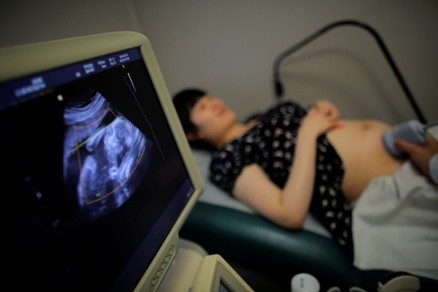Pregnant women in China are asked to take more medical check-ups as proposed by Shi Yaozhong, during the Third Session of the 12th Chinese People’s Political Consultative Conference (CPPCC).
Shi made the proposal after it was observed that the number of pregnant women visiting doctors' clinics before giving birth continue to decrease since mandatory requirements for prenatal medical check-ups ended in 2003.
The advisor also noted an increase in congenital birth defect rate among babies.
A report by womenofchina.cn said that almost 900,000 cases of babies born with defects in China each year and around 250,000 are only diagnosed after the babies' birth. The report added that the annual overall rate for babies born with defects is about 5.6 percent.
According to the report, the decreasing rate of pre-natal check-ups in the country may be attributed to several issues that include lack of knowledge on the importance of medical visits, as some young people believe it is no longer necessary after their yearly general health examination.
In addition to this, some people also think that all health check-ups are the same and do not know the difference between the prenatal and the regular medical check-up.
The report further said that privacy concerns and the lack of prenatal health regulations are the other issues that contribute to the decreasing rate of prenatal check-ups.
Shi, who is also deputy-mayor of Bazhong City in southwest China's Sichuan Province, asked the government to conduct promotional campaign aimed at highlighting the importance of getting prenatal health check-ups. She said that young mothers should be informed on the benefits of the check-up and their social responsibility as a parent.
The official also called on local governments to improve the quality of prenatal health check-ups and help reduce medical and service charges.
Shi underscored the importance of prenatal check-ups as the first line of prevention in controlling infant birth defects.
"Tackling this issue would contribute much to the improvement of the quality of the newly born population as well as the future of the country," Shi added.



























